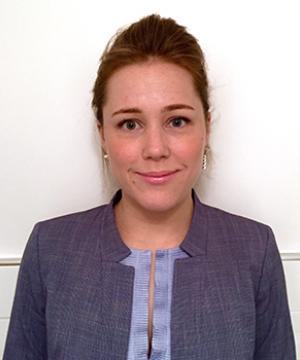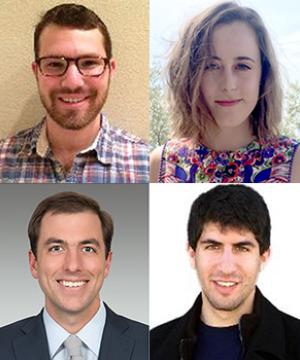Students Win Environmental Law Writing Competition
Essays by students in Professor Michael Gerrard’s seminar on climate change address challenges ranging from fossil fuels to protection for federal lands.
Five current and former Columbia Law students have earned top honors in a statewide essay competition designed to challenge law students to analyze environmental issues of the day.
Anna Baxendale ’17 LL.M. won first prize in the 2017 William R. Ginsberg Memorial Essay Contest for her essay “Fraud, Free Speech and Fossil Fuel: Lessons from Big Tobacco for Big Oil.” It examines parallels between the conduct of ExxonMobil and tactics employed by the tobacco industry that led to the U.S. Government’s successful racketeering case against cigarette makers.
The win marks the fourth consecutive year that a student at Columbia Law School has finished first in the annual competition, which is sponsored by the Environmental Law Section of the New York State Bar Association.
All five winners were students in Advanced Climate Change Law, a seminar taught by Michael Gerrard, Andrew Sabin Professor of Professional Practice and director of the Sabin Center for Climate Change Law. “We are in an era when environmental lawyers are more needed than ever, and Columbia is producing a steady stream of future leaders in this field, as evidenced by this string of essay contest winners,” Gerrard said.
The conduct of companies faced with climate-related risks “is an area of law and policy that is only growing in importance year after year, and this contest is a wonderful way to encourage students to research and write in this field,” said Baxendale, a U.K. lawyer who spent several years working in London before coming to Columbia.
From Fossil Fuels to Federal Lands
“Having grown up in a community that is very environmentally aware, I was excited to have the opportunity to take a class with a leader like Professor Gerrard, who was an invaluable resource to me,” added Baxendale, who currently works in New York for the law firm Kirkland & Ellis.
Joseph Margolies ’18, who holds a bachelor’s degree in public policy, summa cum laude, from Princeton, tied for second-place honors with his essay, “Fossil Fuel Extraction Bans: A Takings Analysis." The article examines whether regulatory takings could help move the U.S. away from its dependence on fossil fuels.
Margolies tied with Matthew Scarano ’17, whose essay, “Withholding Municipal Services to Facilitate Coastal Retreat: Legal Risks and Possibilities,” presents a tool that local governments in the U.S. can use to address sea level rise. Previously, Scarano's article won first place in a national student writing competition held by the American Planning.
Christian Termyn ’17, an associate in the energy, environment, and resources group at the law firm Perkins Coie in San Francisco, tied for third place in the competition with his essay, “No Take Backs: Presidential Authority and Public Land Withdrawals." In his piece, he argues that federal law bars presidents from withdrawing protections from lands designated by their predecessors for protection.
Termyn tied with classmate Lauren Packard ’17, a legal fellow with the public rights division of the California Department of Justice. Packard's essay, “Designing an International Liability Regime to Compensate Victims of Solar Radiation Management,” offers recommendations for an international liability regime that would govern solar radiation management (SRM) to resolve disputes and compensate victims of SRM deployment.
While a CLS student, Packard, awarded the Alfred S. Forsythe Prize for excellence in environmental law, researched vehicular emissions regulations for Charles Sabel, the Maurice T. Moore Professor of Law. Working under the supervision of Gerrard and in the Law School's Environmental Law Clinic, Packard also published a note, “Michigan: An Intrusive Inquiry into EPA’s Rulemaking Process.”
The competition honors William R. Ginsberg, a professor of environmental law, advocate for the preservation of open space, and former New York City commissioner of parks and recreation.
Further Reading
Fraud, Free Speech, and Fossil Fuel: Lessons from Big Tobacco for Big Oil
Fossil Fuel Extraction Bans: A Takings Analysis
Withholding Municipal Services to Facilitate Coastal Retreat: Legal Risks and Possibilities
Designing an International Liability Regime to Compensate Victims of Solar Radiation Management
No Take Backs: Presidential Authority and Public Land Withdrawals
###
Posted on Nov. 17, 2017

